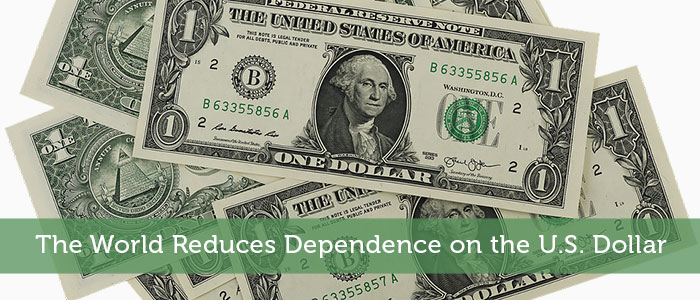There is a growing global trend of ditching the United States dollar. Russia announced it is replacing its U.S. currency holdings while conducting trade with African nations. Chairman of the Russian Zimbabwe Business Council, told reporters, “I think it’s possible to use other currencies in Africa.” The Russian bank is expecting to extend its activities in the region. This news comes just weeks after the Russian government announced it will de-dollarize its economy in an attempt to lessen the impact of sanctions imposed on it by the United States. Russian president, Vladimir Putin said the following to the press, “We will definitely be moving in this direction, towards independence from the US dollar – Not because we want to undermine the dollar, but because we want to ensure our own security, because we have sanctions opposed on us. They don’t let us work with the dollar.” As a result, Russia dumped 84% of its total U.S. debt over the last month in October. Meanwhile its gold reserves are up to 1998.5 tons. Gold has been a good international payment system for most of history, and many believe it is a good substitute for U.S. dollar for global trade purpose.

Photo Source
Moscow is not the only capital looking to get rid of the U.S. dollar. This has become a world wide trend. China is currently the largest foreign holder of U.S. debt. But recently it dropped about $6 billion of U.S. debt. Meanwhile China’s gold reserves went up to 1842.6 tons. There is currently a trade war between the China and the U.S. China is trying to disrupt the influence of the U.S. currency abroad by offering the Petro-Yuan exchange which started trading this year. This new system allows international investors to buy oil in gold futures and yuan instead of the U.S. dollar.
In the middle of it all, Japan has also scaled back its holdings of U.S. government debt earlier this year in June. Its currently holdings are at levels not seen since 2011. According to Reuters, “Japanese investors sold 455.8 billion yen ($4.09 billion) of U.S. bonds in June, as the Federal Reserve’s gradual rate-hike campaign curbed their appetite for Treasuries, according to data from Japan’s Ministry of Finance released last week.”













Leave A Comment